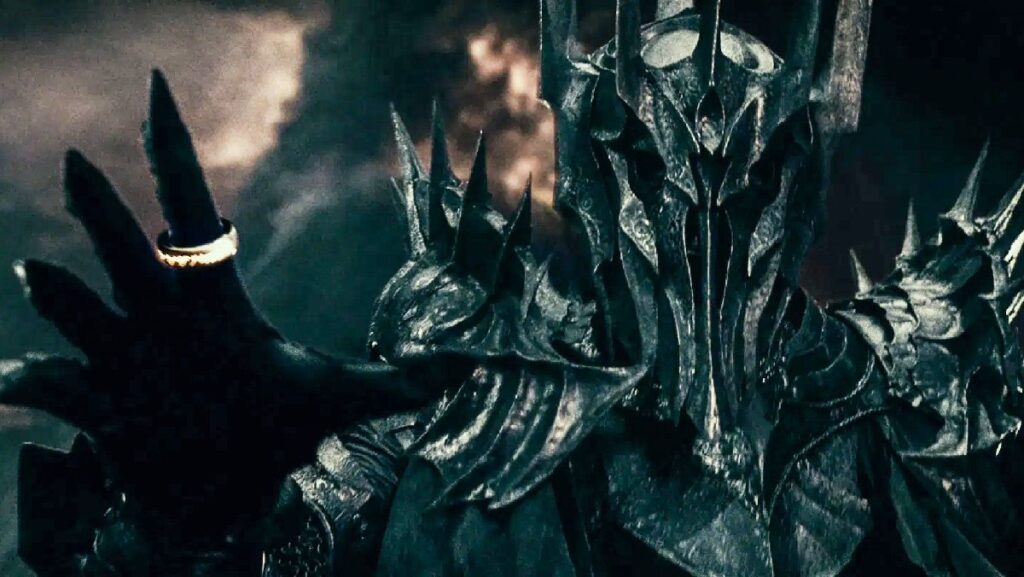Friday
As commentators reflect upon Russia’s Ukraine invasion, a number of them—both Russians and non-Russians—say they should have realized the threat Vladimir Putin posed to the world years ago. Of course, hindsight is always 20/20, but it’s also true that experts like former ambassador to Russia Michael McFaul have been pointing out Putin’s evil for decades. In any event, when I heard these observations, a passage from Tolkien’s Lord of the Rings came to mind.
It occurs during Elrond’s council in Rivendell as the “fellowship of the ring” comes together. The elf lord informs the gathering that, in the early days, men and elves failed to recognize the danger that Sauron posed:
Then all listened while Elrond in his clear voice spoke of Sauron and the Rings of Power, and their forging in the Second Age of the world long ago. A part of his tale was known to some there, but the full tale to none, and many eyes were turned to Elrond in fear and wonder as he told of the Elven-smiths of Eregion and their friendship with Moria, and their eagerness for knowledge, by which Sauron ensnared them. For in that time he was not yet evil to behold, and they received his aid and grew mighty in craft, whereas he learned all their secrets, and betrayed them, and forged secretly in the Mountain of Fire the One Ring to be their master.
In our case, perhaps it was Europe’s eagerness for Russian oil and natural gas that ensnared them. Or his claim that, when he was leveling Chechen cities, he was actually leveling Muslim terrorists. In any event many ignored the warning signs. Fortunately for the elves, there was a Michael McFaul in their ranks:
But [elf lord] Celebrimbor was aware of him, and hid the Three [rings of power] which he had made…
There are two stages in the battle against Sauron. In the first, there is “the last Alliance of Elves and Men,” which temporarily defeats Sauron and seizes the ring of power. But instead of throwing it into “Orodruin’s fire” (Mount Doom) then and there, King Isildur takes it for himself, which gives Sauron a chance to come back. Some blame Putin’s rise on NATO’s expansion following the collapse of the Soviet Union, regarding it (similar to Isildur) as a quick grab for power.
My own thoughts on the subject, however, are that Sauron was going to Sauron, regardless of what America and western Europe did. If those border countries applied for NATO membership, it was because they knew only too well Russia’s long history of territorial expansion. There’s a reason why even Sweden and Finland are now considering NATO membership.
Whatever the cause of Sauron’s rise, it takes Frodo, with his western and Christian values, to take the tyrant down a second time—just as western democracies must come together in their own fellowship to stop Putin. The outcome is still in doubt and, in the meantime, Russian forces are (for those of you who know your Tolkien) trying to turn Minas Ithil into Minas Morgul.
I’m referring here to the once thriving Gondorian city that Sauron’s minions transform into a place of desolation and evil. Faramir, serving as a guide for Frodo and Sam, describes what happened to the city once it fell under enemy control:
As you know, that city was once a strong place, proud and fair, Minas Ithil, the twin sister of our own city. But it was taken by fell men whom the Enemy in his first strength had dominated, and who wandered homeless and masterless after his fall. It is said that their lords were men of Númenor who had fallen into dark wickedness; to them the Enemy had given rings of power, and he had devoured them: living ghosts they were become, terrible and evil. After his going they took Minas Ithil and dwelt there, and they filled it, and all the valley about, with decay: it seemed empty and was not so, for a shapeless fear lived within the ruined walls.
Later Frodo and Sam get a view of the city, which reminds me of some of the bombed-out apartment complexes we are seeing in Ukraine:
A long-tilted valley, a deep gulf of shadow, ran back far into the mountains. Upon the further side, some way within the valley’s arms high on a rocky seat upon the black knees of the Ephel Dúath, stood the walls and tower of Minas Morgul. All was dark about it, earth and sky, but it was lit with light. Not the imprisoned moonlight welling through the marble walls of Minas Ithil long ago, Tower of the Moon, fair and radiant in the hollow of the hills. Paler indeed than the moon ailing in some slow eclipse was the light of it now, wavering and blowing like a noisome exhalation of decay, a corpse-light, a light that illuminated nothing. In the walls and tower windows showed, like countless black holes looking inward into emptiness…
The resemblance between Putin and Sauron, incidentally, is not entirely accidental since Tolkien had Hitler and Stalin in mind when he was composing his trilogy while Putin models himself on both men. In fact, the attack on Ukraine resembles both Hitler’s invasion of Poland and Stalin’s invasion of Finland.
We don’t know how our story will end. In the novel, however, we know that Sauron will eventually make his way to the Shire if he isn’t stopped earlier.
